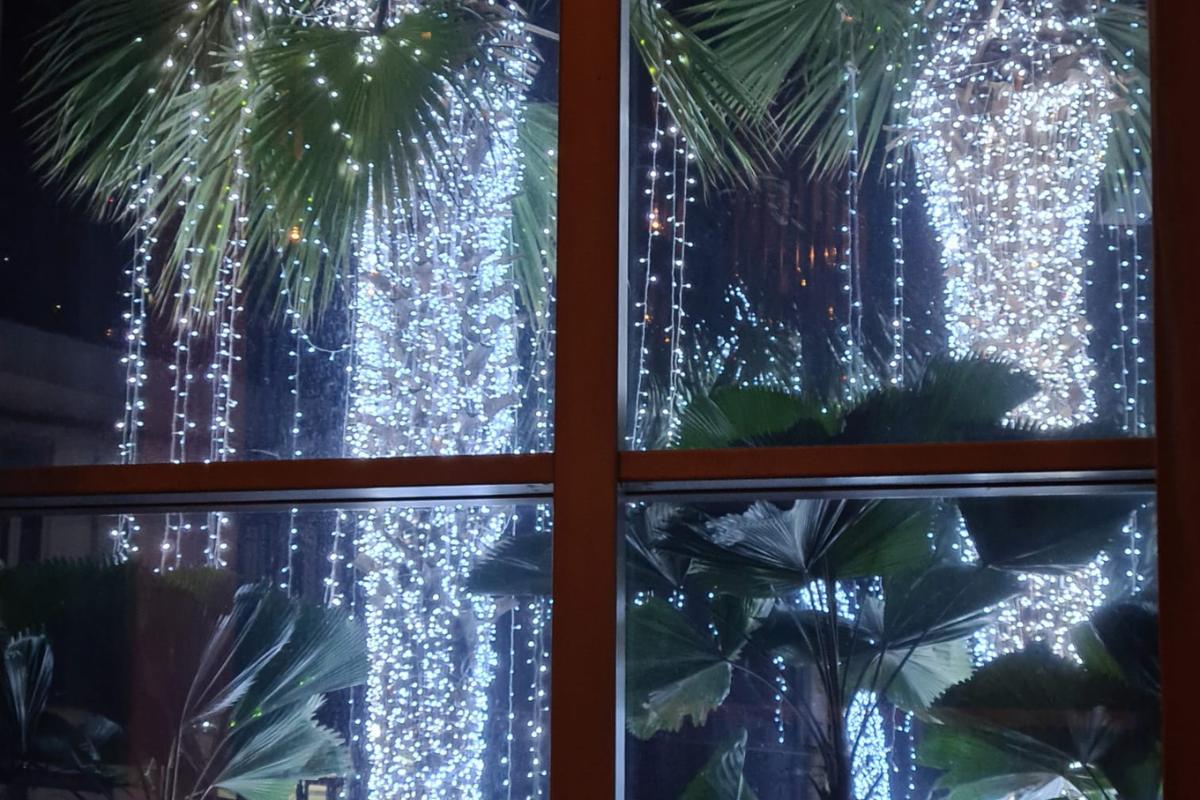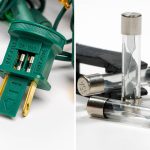You can leave Christmas lights on all night, but not necessarily recommended. Traditional incandescent Christmas lights can generate significant heat when left on for longer periods. This heat can pose a potential fire hazard, especially if the lights are close to flammable materials such as curtains, dried-out Christmas trees, or paper ornaments. It is important to regularly check the condition of the lights, avoid overloading circuits, and consider using LED lights, which are cooler and more energy-efficient, to ensure a safe and merry holiday season.
The Potential Dangers of Unattended Lighting
Unattended Christmas lights can pose several risks if not monitored properly.
The most significant concern is the fire hazard. Traditional incandescent bulbs can generate heat, and if they are close to flammable materials like curtains or paper decorations, there is a potential risk of fire.
Electrical malfunctions are also a common issue. Over time, or due to manufacturing defects, the wiring in the strings of the lights can become damaged, which can lead to short circuits. This risks electrocution.
Overloading circuits is another danger. Plugging too many lights into a single outlet or power strip can strain the home’s electrical system, potentially causing outages or fires.
There is also the risk of physical accidents. Loose cords or string lights on the floor can become tripping hazards.
Tips for Leaving Outdoor Christmas Lights on All Night
LED Outdoor Lights
LED (Light Emitting Diode) lights are the optimal choice when leaving outdoor Christmas lights on for long periods.
Unlike traditional incandescent bulbs, LED bulbs are environmentally friendly and energy-efficient, consuming up to 90% less power. You will see noticeable savings on electricity, but more importantly, LED bulbs emit less heat, reducing the risk of fire hazards when you leave the lights on overnight. Their durability and longer lifespan mean they are less likely to burn out.
Timers
I once switched to using timers for my Christmas tree lights, and it was a game-changer. These handy devices let you schedule when your lights turn on and off. I had them shut off during the quietest hours and noticed a drop in my electricity bill. I also found that my lights lasted longer, too.
Motion Sensors
After a friend recommended motion sensors for my outside Christmas lights, I gave them a try. They are brilliant! The lights only come on when someone approaches, saving energy and adding security. It is also quite fun seeing them light up as I walk by.
Safety Checks
Last year, my husband noticed a flickering in one of our light strands. Upon closer inspection, I found loose connections. Regularly checking your lights can prevent such issues from becoming hazards. It is a small effort that can make a big difference in safety.
Circuit Breakers
A neighbor of mine had a minor electrical mishap during the holidays. Since then, I have always ensured my outlets have integrated circuit breakers. They cut off power during electrical inconsistencies!
Strategic Placement
I remember the year I placed a hot bulb too close to a curtain, leaving a scorch mark. Lesson learned! Positioning lights away from anything that can catch fire, especially the warmer ones, is essential. Now, I always ensure they are safely distanced from flammable items.
Battery-Operated Lights
I wanted to have twinkling lights to add some holiday cheer. Battery-operated LED lights were my go-to. They are convenient, use no cords, are safe, and don’t need an outlet. The ambiance they created without the hassle of cords was magical.
Solar-Powered Lights
I tried solar-powered string lights for my driveway. They soak up the sun’s energy by day and glow beautifully by night. They use LED bulbs, reduce my carbon footprint and save on electricity costs. It’s a win-win for both the environment and my wallet.
Best Time to Turn Off Your Christmas Indoor Lights
Turn off your Christmas indoor lights when you are not around for a long period of time or during the night. Keeping lights on for an extended time can lead to potential electrical malfunctions, especially with older or damaged sets. Turning them off before you go to bed or when you are away from home saves you energy, reduces electricity costs, and extends the lifespan of the lights.

Summary
You can leave outdoor Christmas lights on throughout the night; however, using a Christmas light timer to switch them off in the night uses less energy, and you can save money. LED Christmas lights are a safer option for extended use than traditional ones due to their minimal heat production.










